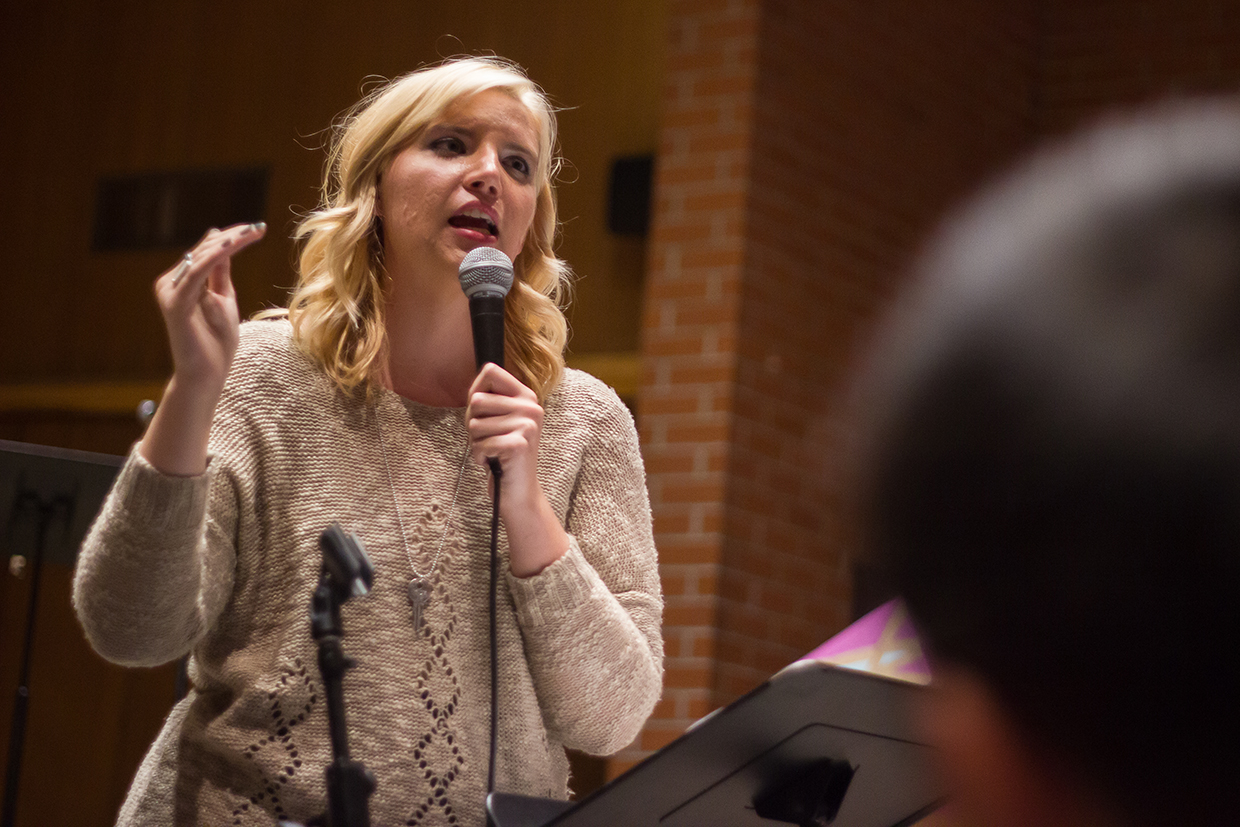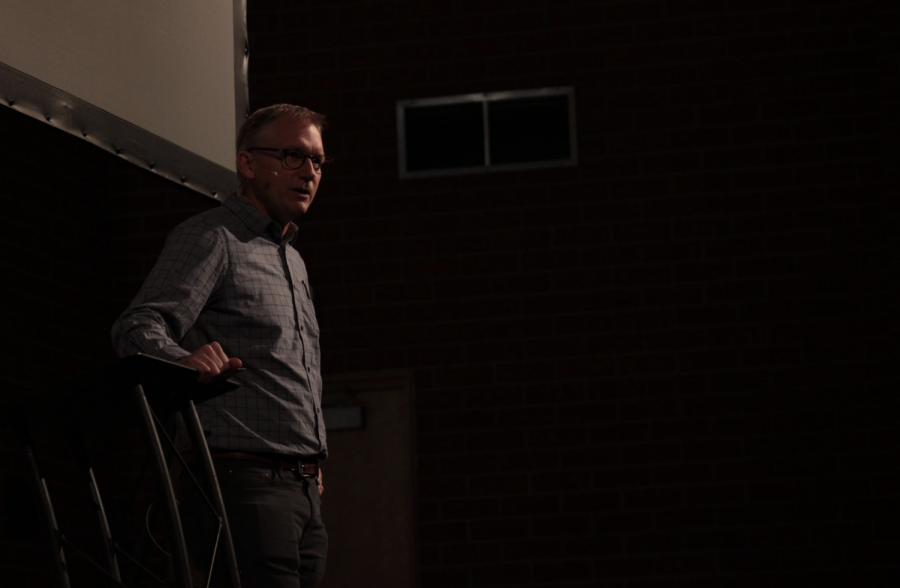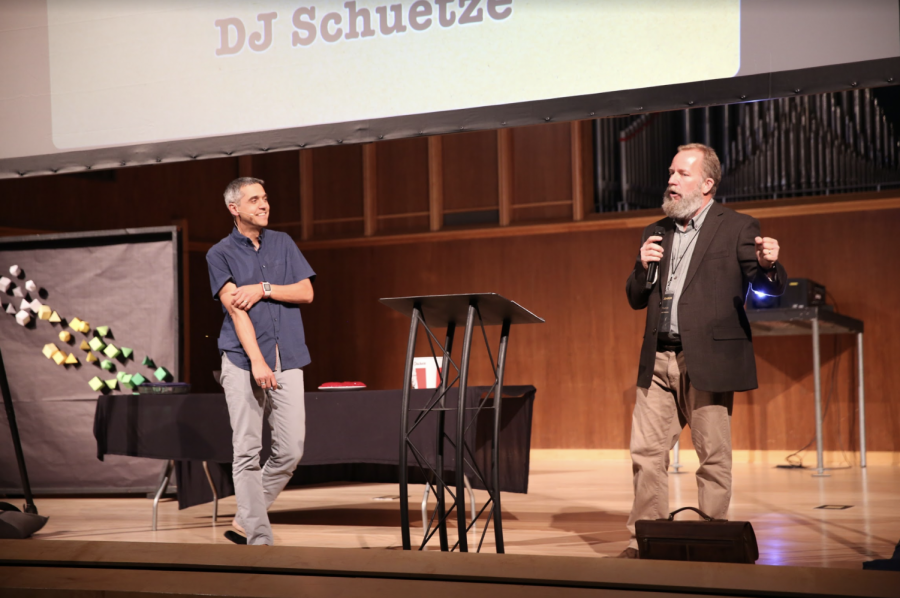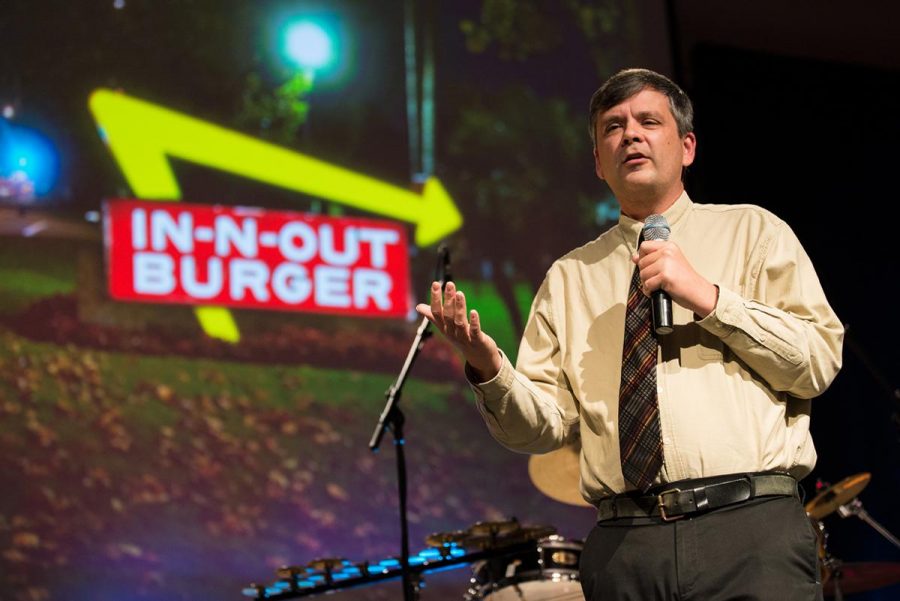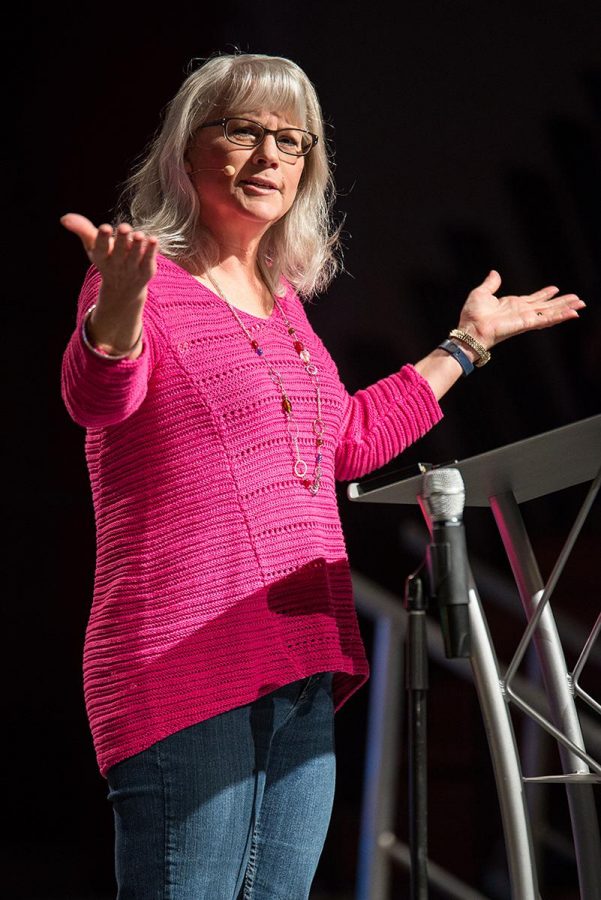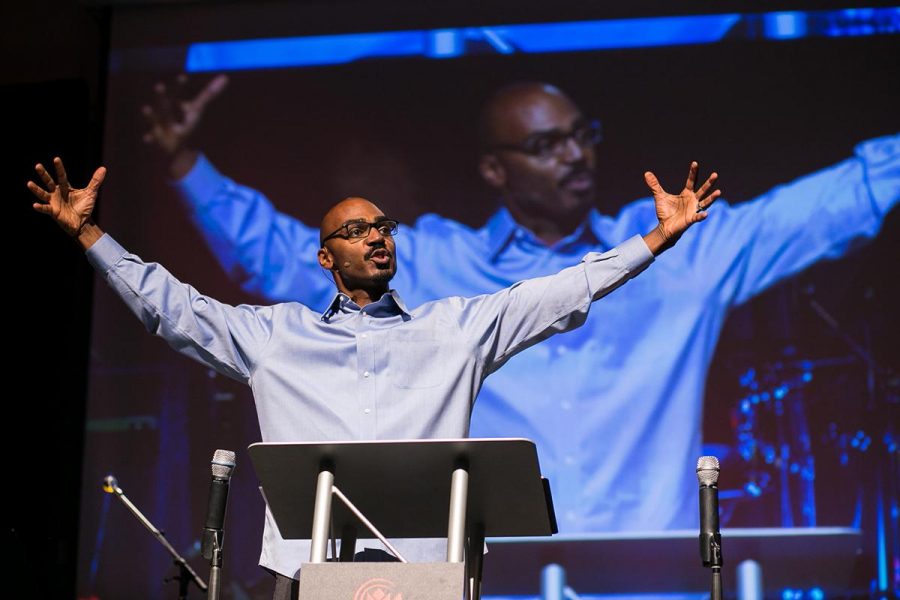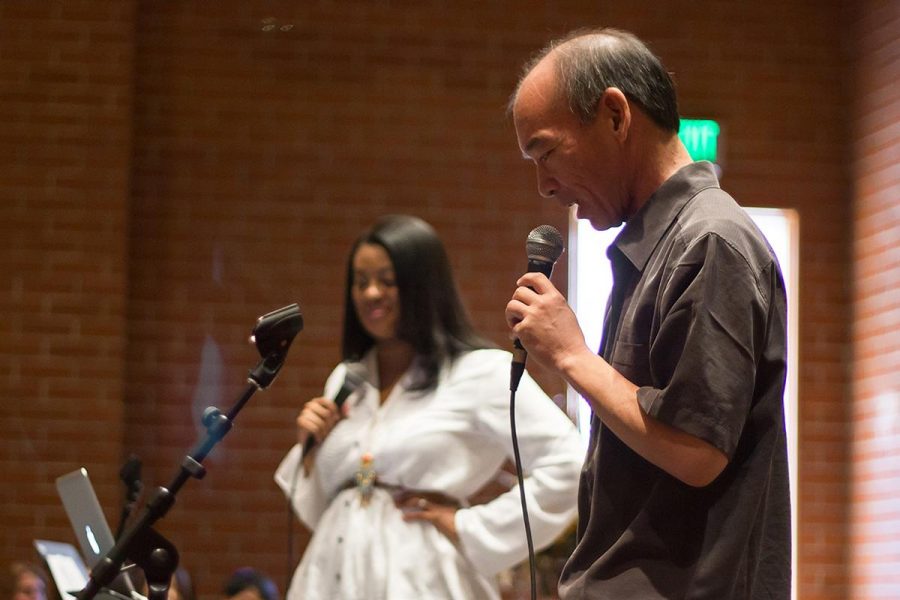Excitement grew and Twitter overflowed with talk of senior Becky Hartung’s presentation during today’s session.
Hartung explained different views of society and how we connect to each other through storytelling. She opened by stating her intentions for the session. Her hope was for each person to leave reflective on themselves and how they relate to others. She then continued by addressing the term that has been emphasized over the entire conference — conflict.
Conflict, as described by Becky Hartung, is not necessarily a negative concept. The occurrence of conflict in a relationship is an opportunity for two people to come together and grow. According to Hartung, conflict consists of two people with different views butting heads on an issue. She sees this as a healthy situation, allowing two people to openly communicate with each other and come to a deeper understanding at the end of the conversation. Flipping the connotation on the word “conflict” gave a new perspective. It encouraged meditation on the Bible and ultimately understand the theme of Torrey more fully.
Hartung also spoke further in depth about the word society and how many automatically negatively associate the word with its issues. When asking around, she found many people willing to share the first thing that came to their mind. Some answers included consumerism, beauty and gender roles. These ideas about society, though serious and relevant, ultimately reflect our own view of ourselves.
“Our deepest wounds are society’s biggest stories,” Hartung said.
Because Hartung had her fair share of internal and external wounds in her life, she began to connect with everyone in the room, becoming vulnerable about her personal struggles. She shared her experiences with adoption, loneliness, anxiety, depression and living with facial scars. Our scars tell a story and Hartung defined society as a collection of our own stories, wounds and reflections of the things we see in ourselves. Society is a collection of storytellers and these stories have the power to spark social change. We must acknowledge our wounds. They are what shape our story and help us connect with others.
As the session drew to a close, Hartung emphasized the importance of connection and how it was only a fancy way to describe the way we relate to each other. To help someone in the midst of conflict, we must become vulnerable. We do not always need to know the perfect thing to say — this is not what is most important. In order to stay connected in a time of conflict, we must make one another feel validated and heard. People just want to know you have their back.
The way we connect and communicate with each other is one of the most important aspects of life. If we cannot form and maintain relationships, we will not be able to efficiently function in this world. We must overcome our own personal conflicts and our conflicts with others — Becky Hartung gave a new understanding of what this means.



